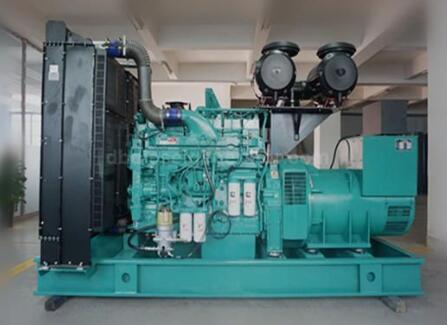How Long Can Diesel Fuel Sit in a Generator?
Diesel generators are essential for providing backup power in various settings, from industrial facilities to residential homes. One critical consideration for those who rely on diesel generators is the stability and shelf life of the fuel. In this article, we will explore how long diesel fuel can sit in a generator, the factors influencing its longevity, and best practices for ensuring fuel quality.
Understanding Diesel Fuel Stability
1. Chemical Composition
Diesel fuel is a hydrocarbon-based liquid with a complex chemical composition. Over time, various factors can impact the stability of diesel fuel, leading to degradation and changes in its properties.
2. Oxidation
One of the primary factors influencing diesel fuel stability is oxidation. Exposure to air can cause the fuel to react with oxygen, leading to the formation of gum and sediments. Oxidation can accelerate the aging process of diesel fuel.
Factors Influencing Fuel Degradation
1. Temperature
Temperature plays a crucial role in the stability of diesel fuel. Higher temperatures can accelerate oxidation and promote microbial growth, both of which contribute to fuel degradation. On the other hand, storing diesel fuel in extremely cold temperatures can lead to issues such as waxing and gelling. Therefore, it is very critical to store diesel at a suitable temperature, because the quality of diesel will also affect the operating performance of diesel generators set to a certain extent.
2. Water Contamination
Water contamination is a significant concern for diesel fuel storage. Water can lead to microbial growth, corrosion of storage tanks, and separation of water from the fuel. Microbes in the water can also contribute to the formation of sludge and other contaminants.
Suggested reading:Highlighting the benefits of using prismatic lithium battery cells
Benefits of using thermally conductive silicone encapsulant in electronic devices
Applications of Electric Steam Boilers
Top Electronic Shooting Hearing Protectors on the Market
Shelf Life of Diesel Fuel
Applications Synchronous Motor
Choosing the Right LV Motor for Your Needs
Introduction to Open Source RFSOC Algorithm Verification Evaluation Board
1. Short-Term Storage
Diesel fuel is generally considered stable for short-term storage, typically up to six months to a year. During this period, if stored under proper conditions, the fuel should maintain its stability and effectiveness.
2. Long-Term Storage
For long-term storage, additional precautions are necessary. Diesel fuel storage tanks should be kept full to minimize exposure to air, and the tanks should be stored in a cool, dry place away from direct sunlight. Regular testing and treatment with stabilizers can also help extend the shelf life of diesel fuel.
Best Practices for Preserving Diesel Fuel Quality
1. Regular Testing
Regular testing of diesel fuel for factors such as water content, microbial contamination, and oxidation levels is crucial for maintaining fuel quality. This allows for timely intervention and treatment if any issues are detected.
2. Fuel Additives
Fuel additives, such as stabilizers and biocides, can be used to enhance the stability of diesel fuel. Stabilizers help prevent oxidation, while biocides combat microbial growth. Choosing the right additives and following manufacturer recommendations is essential.
Conclusion
In conclusion, the shelf life of diesel fuel in a generator is influenced by various factors, including chemical composition, temperature, and water contamination. While diesel fuel is generally stable for short-term storage, proper precautions and maintenance are necessary for long-term storage to ensure fuel quality and the reliable performance of the generator.
If you have questions about diesel fuel storage, additives, or are looking for reliable diesel generators and related equipment, please do not hesitate to contact us. As a reputable supplier, we are committed to providing information and solutions that meet your power generation needs and ensure the longevity of your equipment.
Essential Solutions for Buying China Ball Mill Motors: Addressing Common Concerns
Choosing the Right Explosion Proof Lights Supplier for Safety
Ultimate Guide to Choosing the Best Explosion Proof Drop Light


